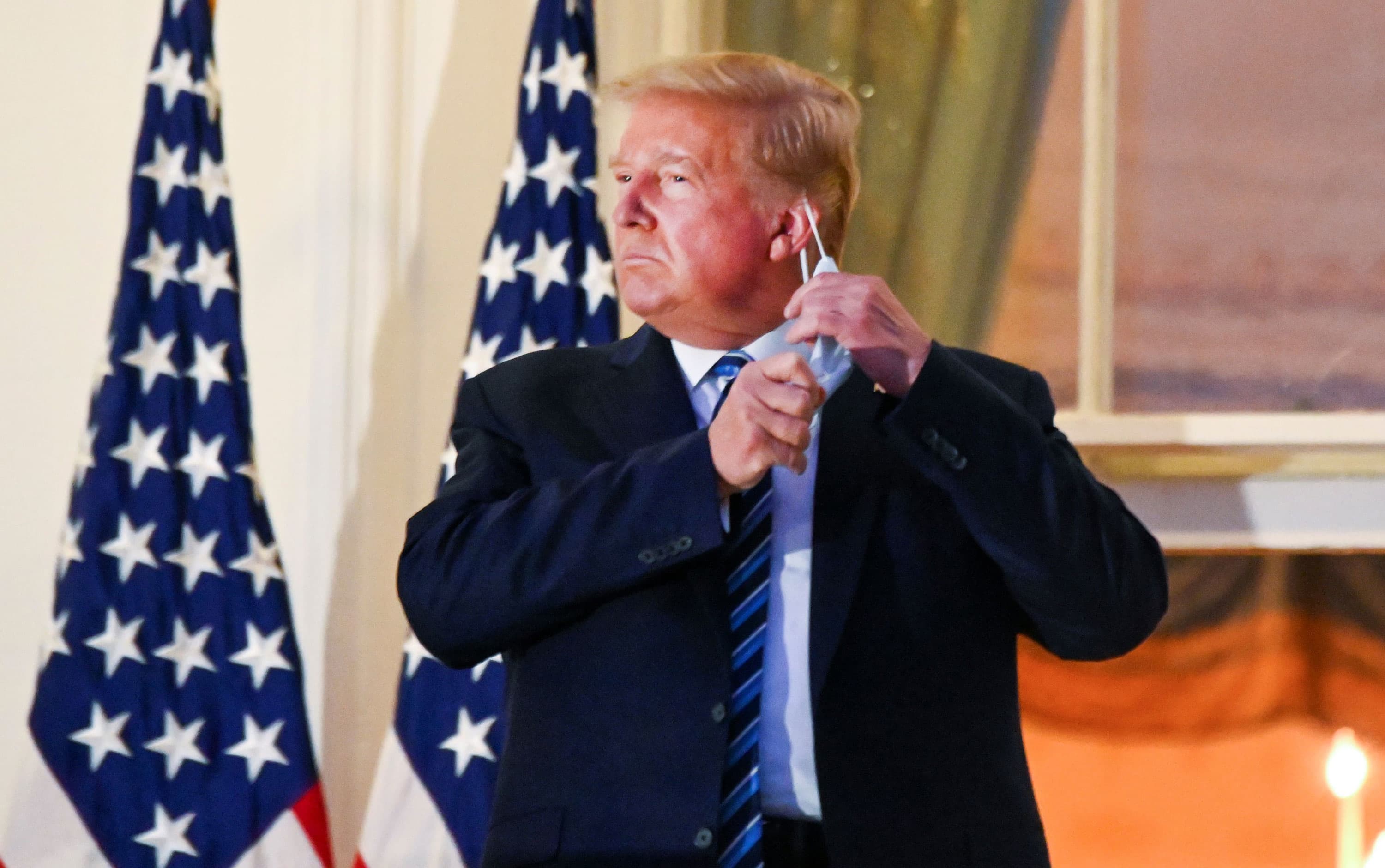
WASHINGTON — The second presidential debate between President Donald Trump and Democratic nominee Joe Biden, scheduled for Oct. 15, will be held virtually, the bipartisan Commission on Presidential Debates said Thursday.
Minutes after the announcement, however, Trump said he would not participate.
“No I’m not going to waste my time on a virtual debate,” he said during an interview on the Fox Business channel. His campaign later said Trump will hold a rally that night instead.
Trump and his allies quickly claimed, without evidence, that the commission made the change to favor Biden. A Biden campaign source told NBC News that the debate commission made the decision unilaterally.
The commission’s decision came six days after Trump announced that he and first lady Melania Trump had tested positive for the coronavirus.
Since Trump’s diagnosis, more than a dozen White House officials have tested positive for Covid-19.
Biden said earlier this week that he thought the debate shouldn’t go on if the president were still infected with the coronavirus.
“I don’t think I’m contagious,” Trump told Fox on Thursday morning. Public health officials say Covid patients need to be isolated from others for at least 10 days after contracting the virus, and up to 20 days depending on the severity of the infection.
Trump’s campaign has also been privately discussing possibly holding a campaign event next week in Pittsburgh, according to people familiar with the matter. The event could end up being around the same time that the debate was slated to take place.
Citing a need to “protect the health and safety of all involved,” the debate commission said in a statement, “The second presidential debate will take the form of a town meeting, in which the candidates would participate from separate remote locations.”
The debate’s location in Miami and the moderator, C-SPAN’s Steve Scully, will remain unchanged, they said.
Since Trump’s diagnosis, more than a dozen White House officials have tested positive for Covid-19.
The president was later transferred to Walter Reed National Military Medical Center, where he spent the next three days receiving an aggressive treatment of therapies under the care of a team of doctors.
Trump was discharged from the hospital Monday into the care of White House physicians who say he is steadily improving.
It is unclear exactly when Trump was first infected with the virus or when he last tested negative for it before his positive tests last Thursday. Both of these factors make it difficult to assess when the president will no longer be contagious to others.
A day after he left Walter Reed hospital, Trump tweeted on Tuesday that he was “looking forward to the debate,” despite still being treated for Covid-19. Trump’s campaign said the president wanted to participate in the debate “in person.”
Earlier this week, Biden said if Trump remains infectious then the debate should be called off, but added that he would follow medical professionals’ advice.
Following news of the debate change, Trump’s campaign manager Bill Stepien, who was recently diagnosed with Covid-19 himself, insisted the debate can still be held safely in person.
The first debate between the two candidates last Tuesday in Cleveland quickly devolved into a fiasco after Trump refused to stop talking when his allotted time was finished, and continued to interrupt and insult Biden for the remainder of the debate.
Biden also grew frustrated during the 90 minute debate, at one point calling the president “a clown.”
Following the disaster in Cleveland, the commission said it was exploring ways to give the debate moderators more ways to enforce the previously-agreed upon rules if and when candidates refused to obey them.
A virtual debate could solve two problems at once for the debate commission: Protect the town-hall attendees, staff, moderators and candidates from coronavirus infection and provide the moderator with the option of cutting the video and audio feeds of candidates who ignore the rules.
CNBC’s Brian Schwartz contributed to this article.



